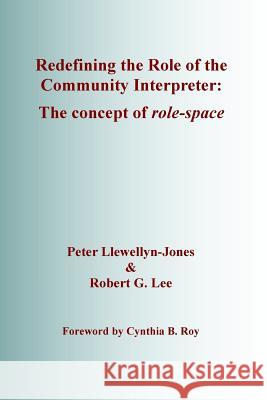Redefining the Role of the Community Interpreter: The Concept of Role-Space » książka
Redefining the Role of the Community Interpreter: The Concept of Role-Space
ISBN-13: 9780992993603 / Angielski / Miękka / 2014 / 176 str.
'Redefining the Role of the Community Interpreter' questions the traditional notion of 'role' that is so often taught on interpreter education and training courses and, more often than not, prescribed by the Codes of Ethics/Practice/Conduct published by institutional users and providers of interpreting services. By examining the nature of face-to-face interactions and drawing on the most recent research into community and public service interpreting, the authors propose and describe a wholly new approach to the role of the interpreter; one based on research and the experiences of the authors, both of whom have, for many years, taught postgraduate interpreting courses and, for even more years, interpreted in a wide variety of settings, from international conferences to social services departments, from presidential addresses to benefits offices, and from doctors' surgeries to Courts of Appeal. The 'role-space' model treats all interactions as unique and offers the interpreter a tool to prepare for and participate in those interactions. Excellent language skills are taken for granted, as is the integrity of the interpreter; what is new is the freedom of the interpreter to make appropriate professional decisions based on the reality of the interaction they are interpreting.











